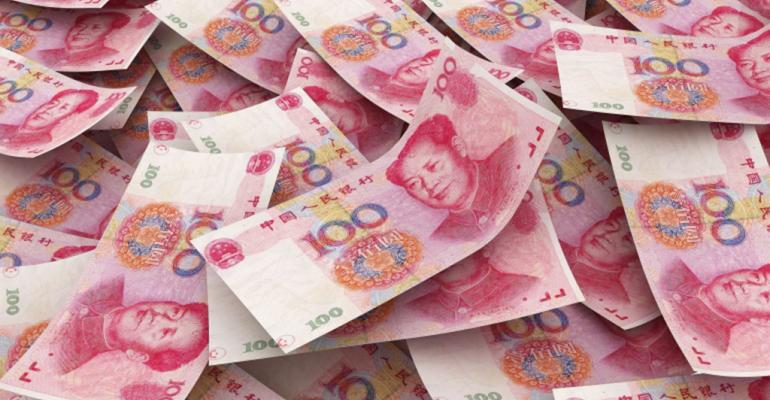(Bloomberg)—Chinese companies may have the financial heft to make record bids for overseas assets but can they stay the course?
Number of failed deals in 2015 involving Chinese companies
110
While it would have been the biggest Chinese acquisition of a U.S. company, Anbang's dropping of its $14 billion offer for Starwood Hotels & Resorts isn't the first time a large Chinese deal has bitten the dust. Affymetrix, a U.S. DNA-testing company, earlier this week recommended against an offer from Origin Technologies, whose backer is a Chinese investment firm, citing concerns about approval from Chinese and U.S. regulators.
A quick look through recent history shows there are in fact a slew of deals involving Chinese companies that have been either aborted or spurned. It's something of a reversal of the optimism of 2015, when China outbound M&A reached a record and seemed to herald a new age of Eastern muscle. Perhaps companies on the mainland have been running before they can walk.
Many of the transactions that came to naught were because the North American target felt CFIUS, or the Committee on Foreign Investment in the U.S., would reject it in an election year, when political sensitivities over China have heightened.
This year alone, stifled deals include Tsinghua Group's almost $4 billion offer to buy a stake in U.S. disk-driver maker Western Digital, and China Resources' play for California-based Fairchild Semiconductor, which ultimately opted for a lower bid than the $2.6 billion on the table because of a CFIUS probe. Western Digital had made all sorts of allowances to try to get the transaction across the line, including a condition that Tsinghua executives step out of board meetings when sensitive government matters were discussed.
Even non-U.S. companies have put the kybosh on Chinese deals, fearing CFIUS's reach. In January, Dutch electronics group Philips terminated the $2.8 billion offer from China's GO Scale Capital for its lighting component unit, citing U.S. regulator concerns.
Another question increasingly coming into play is whether Chinese companies, which typically pay cash, can find the money. Sixty-two percent of failed deals by Chinese acquirers were cash bids, according to data compiled by Bloomberg. Only 50 out of the 1,164 transactions that were withdrawn or terminated had a value of more than $1 billion, and 16 of those were in the last two years.
Anbang's failure to secure Starwood is sure to have ChemChina, another big would-be acquirer, sweating. While Swiss target Syngenta has welcomed ChemChina's $44 billion offer and financing doesn't seem problematic, concern U.S. authorities will stymie the deal has been weighing on Syngenta's share price. Syngenta is a major producer of pesticides and seeds that are used by farmers in the U.S., so the bid may prove politically difficult.
It's early days for Chinese M&A on many fronts, even at home. China Vanke, another company part owned by Anbang, is fending off a rare hostile takeover by a rival real estate developer after getting bought out by a state-owned railway operator, effectively creating a poison pill.
The world is watching trophy-hunting buyers from Asia's biggest economy closely, and wondering whether for all their financial heft and chutzpah they can get deals across the finish line. Friday's Anbang setback is certainly a stumble.
This column does not necessarily reflect the opinion of Bloomberg LP and its owners.
To contact the authors of this story: Nisha Gopalan in Hong Kong at [email protected] Christopher Langner in Singapore at [email protected] To contact the editor responsible for this story: Katrina Nicholas at [email protected]
copyright
© 2016 Bloomberg L.P

